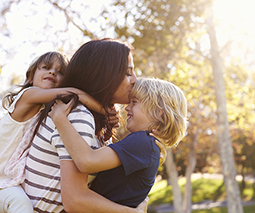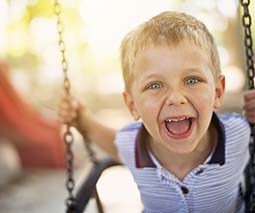Pick a pet that makes sense: The best animals to suit your family
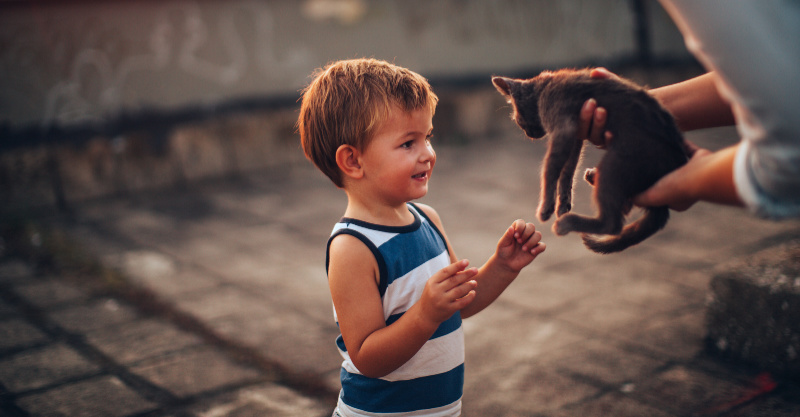
So the kids (or you – let’s be honest here!) want a pet. But not all animals are appropriate for different situations, so before rushing out to bring home your latest bundle of (furry) joy, you might want to take a step back and think about your family. After all, a pet is for life, not just for Christmas!
Pets can be expensive
First of all, some pets can be SUPER expensive from the get-go, or as time rolls on. If you’re already stretched financially, then this is something very important to consider. For example, particular breeds of dogs can cost thousands of dollars, and can often have costly medical issues.
Pet insurance can help, but that’s an expense in itself and cats and dogs can live 15-20 years! Even routine health care like flea and tick prevention can rack up the bills, along with food (especially if they’re quite large), grooming and pet minding.
It’s no surprise then that the most affordable types of pets are ones that are small, not fancy or rare, and don’t have a long life expectancy. Good options are sea monkeys or sea dragons (those teeny shrimp and fish), goldfish, budgies, mice and guinea pigs. If you HAVE to have a cat or a dog, adopting a rescue pet saves money (and a life). You can also choose older animals that way too.
Allergies
There’s nothing sadder than a child who is mega keen for a pet but someone in the family is allergic! Cats are probably the most problematic for allergy sufferers, although many dogs can cause issues too – fur and saliva being the main cause.
Luckily there are certain breeds which are hypoallergenic, such as a poodle, Portuguese water dog and bichon frise (on the canine front), and devon rex or sphynx (for moggies). For severe allergy sufferers, it might be best to stick to a different species altogether such as rabbits (most don’t cause allergies), hamsters, parakeets, frogs, turtles, or – for the brave – snakes.
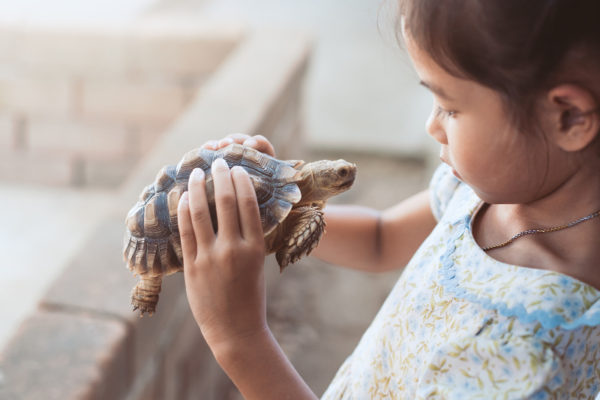
Special needs
Research shows that animals can make a massive difference to children’s emotional wellbeing and physical independence, especially when they have a learning difficulty or special need, such as autism. The right pets can teach these children responsibility, social confidence, unconditional love and help make them feel less anxious.
Cats are an excellent option for this, along with certain breeds of dogs, who are more forthcoming with affection. If you’re unsure how your child will react, visit shelters or foster a pet for a short period as a trial. If your child is quite severely autistic there are also emotional support and service animals who are professionally trained to assist those with special needs.
Read more about children and pets:
- 7 stages of giving your child a pet goldfish
- The 8 best pets for families and how to choose the right one for you
- Dad shares tale of toddler vs pet: “Once a week I find our cat like this”
Living arrangements
A cute little pup might be irresistible to adopt, but remember, it will get bigger! Most dogs need a lot of room to run around, so it’s important to think about your home and whether your space is appropriate for an animal. Not only are apartments usually smaller than houses, but often they don’t have a garden.
If you’re renting, you’ll need to check with your landlord too – and don’t forget about the neighbours! Dogs left by themselves all day are prone to barking which might annoy others. Fail-safe pets for all types of homes are animals like fish and frogs. Cats, small dogs, rabbits, geckos, small birds (that aren’t too noisy), mice and turtles can often go well in smaller dwellings too.
Time poor or nomadic
Travel a lot? Super busy all the time? Then you need a low-maintenance pet that doesn’t require a lot of attention. If this sounds like you, contained pets like fish are best. For something a little cuddlier, cats are very independent and tend to require less attention than a dog, which needs to be walked, played with and bathed on top of feeding, picking up their poo and health care.
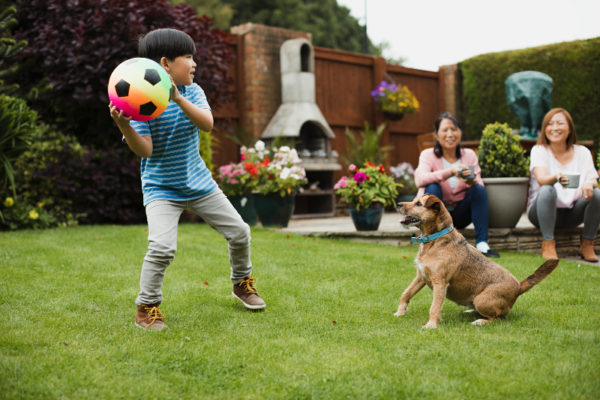
Older energetic kids
If your kids want a dog but they’re not old enough to walk it or look after it, the responsibility falls on you as the parent. That said, if your kids are older and full of energy, a pup could be a great option, as it will help entertain them, give them exercise and teach them responsibility.
Unusual or exotic pets are also best suited for older children (such as a snake, ferret, chickens or a horse), as they will be able to tend to its needs more appropriately than a young child.
The golden rule
The golden rule is this: before you head to the shelter, pet shop or jump online to bring another little member into the family, have a think about your specific situation. The last thing you want is to get a pet only to have to re-home it, much to the disappointment of you and your kids.
Did you regret getting a certain pet? Share your experience with us on our Facebook page.


